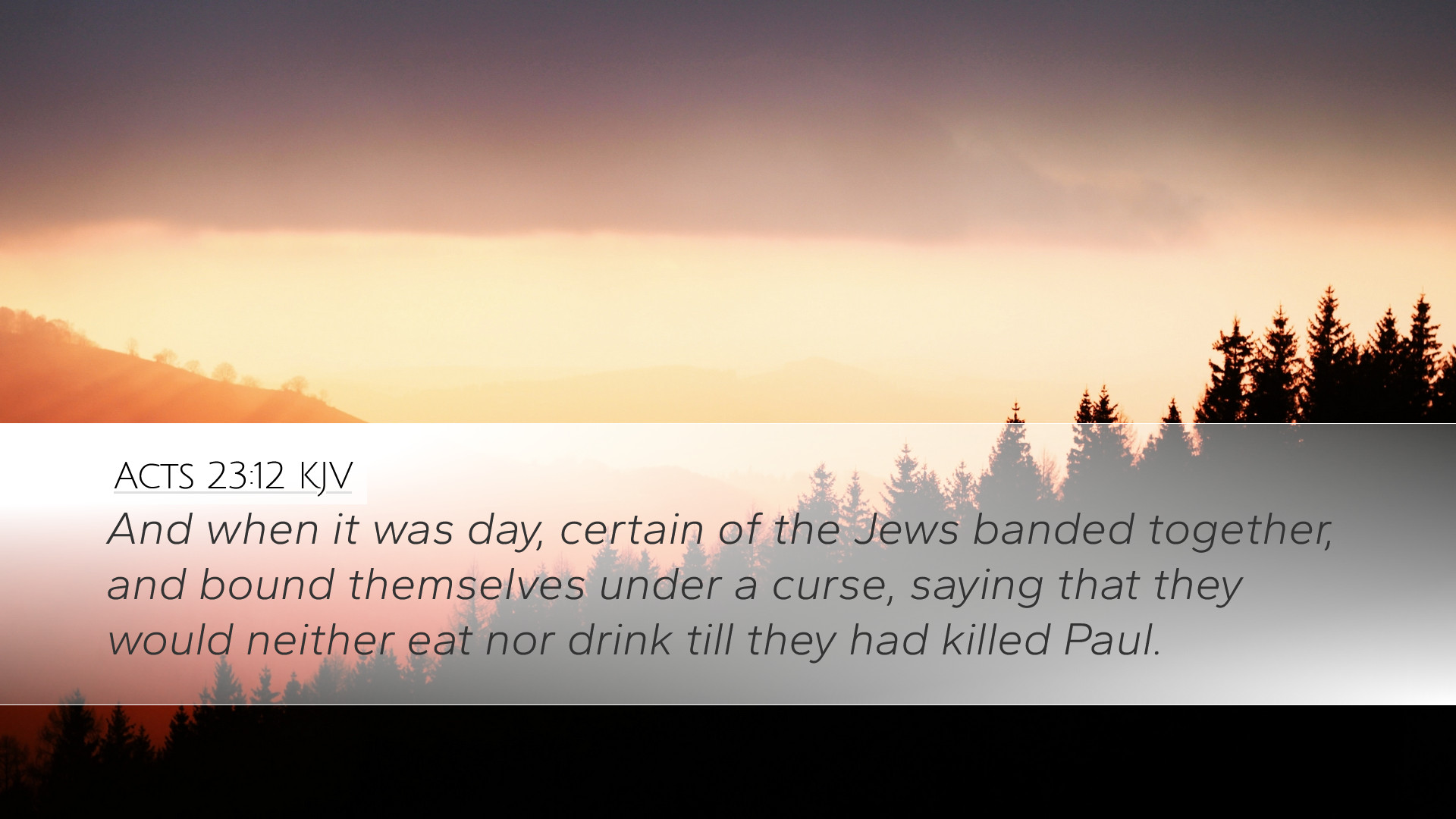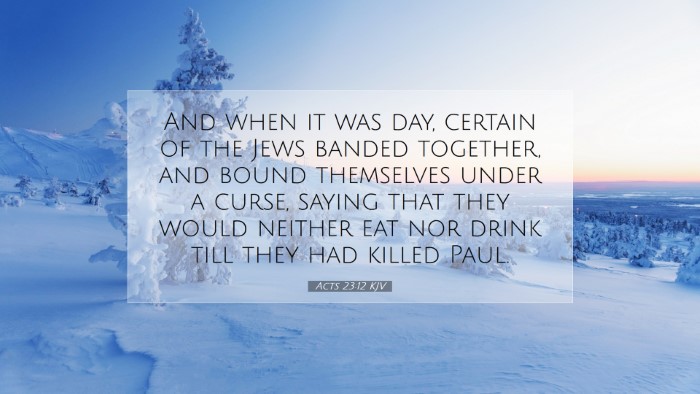Commentary on Acts 23:12
Bible Verse: “And when it was day, certain of the Jews banded together and bound themselves under a curse, saying that they would neither eat nor drink till they had killed Paul.”
Summary of Insights from Public Domain Commentaries
Contextual Background
The events leading up to Acts 23:12 are critical for understanding this verse. Paul, the Apostle, had been arrested in Jerusalem, and his life was threatened by the Jewish leaders. There existed a palpable tension between Paul and the Jewish authorities, culminating in a plot to eliminate him. This verse reveals the extent of the animosity towards Paul and illustrates the lengths to which these individuals were prepared to go to achieve their goals.
Matthew Henry’s Commentary
Matthew Henry emphasizes the seriousness of the conspiracy against Paul. He notes that the Jews formed a solemn oath, binding themselves with a curse, which indicates both their desperation and commitment to their cause. Protestations of vengeance reveal the deep-seated hatred that these individuals harbored against Paul for his teachings and the upheaval they caused within their community. Henry points out that such fanaticism often leads people to act against their own ethical and moral principles, which is evident in this plot against an innocent man.
Albert Barnes’ Commentary
Albert Barnes provides a thorough examination of the motivations behind this oath. He notes that this was not merely a personal vendetta but also fueled by the desire to protect their religious traditions and authority. Barnes highlights the lengths to which the Pharisees and Sadducees would go, implying that zeal, when not aligned with righteousness, can lead to drastic measures. Barnes also connects this event to the broader theme of opposition faced by the early church and the fidelity of their leaders amidst such persecution.
Adam Clarke’s Commentary
Adam Clarke delves into the implications of the curse they invoked. He explains that such a commitment was not lightly made; it was customary in Hebrew tradition to take oaths of this nature to signify the gravity of their mission. Clarke points out that the unnamed aggressors preferred to face hunger and thirst rather than give up on their malicious intent. This kind of commitment, albeit misguided, showcases their zeal, which Clarke uses to underline how misplaced zeal can lead individuals astray, warning modern readers to ensure that their commitments are aligned with God's will.
Theological Implications
This verse carries with it profound theological implications. It poses questions about zeal for God and the nature of true discipleship. While the conspirators believed they were serving their cause, their actions were fundamentally opposed to the teachings of Christ, who calls for love and reconciliation even towards one's enemies. This instance serves as a reminder to biblical scholars and theology students to critically evaluate the motivations behind their actions and the potential for misunderstanding divine mission.
Applications for Today's Church
- Vigilance Against Misguided Zeal: Congregations should remain vigilant against beliefs and practices that lead to harm in the name of religious conviction.
- Commitment to Righteousness: Believers are reminded to reaffirm their commitment to helping others rather than causing harm, even towards perceived enemies.
- Value of Community: The betrayal of Paul serves as a cautionary tale about the need for nurturing a community rooted in love as opposed to fear and hatred.
Conclusion
Acts 23:12 is a stark reminder of the human condition—the potential for both good and evil that lies within those who seek to serve a higher calling. The narratives surrounding Paul’s life emphasize resilience and the transformative power of faith. Commentaries by Matthew Henry, Albert Barnes, and Adam Clarke collectively encourage the modern reader to reflect critically on the nature of their commitments and to strive for a faith that embodies grace, truth, and love.


